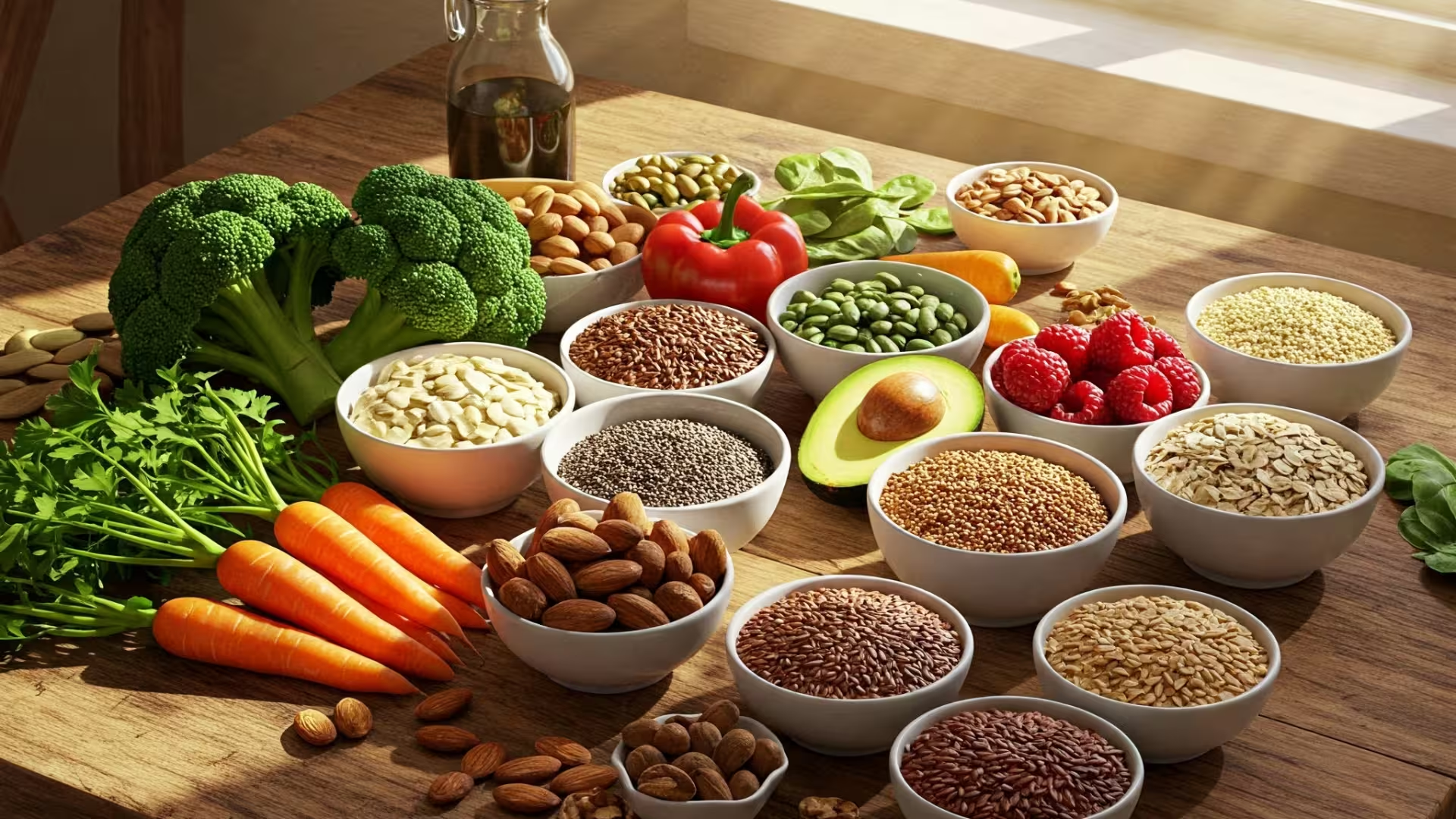When it comes to reproductive health, food plays a much bigger role than most of us realize. Your body’s hormonal balance depends on a steady supply of nutrients, and the right foods can help keep your reproductive system running smoothly. Whether you’re looking to improve fertility, regulate your menstrual cycle, or simply support your hormonal health, what’s on your plate matters more than you think.
How Nutrition Impacts Hormonal Balance
Hormones are like your body’s messengers, telling your organs when and how to function. For your reproductive system, this means regulating ovulation, menstruation, libido, and even mood. A lack of key nutrients—or an overload of processed food—can throw those messages off, leading to imbalances that affect everything from your period to your energy levels. Eating whole, nutrient-dense foods helps your body produce and use hormones more efficiently.
Healthy Fats That Support Hormone Production
Good fats are essential for hormone creation. Cholesterol and fat are used by your body to produce estrogen, progesterone, and testosterone. If you’re avoiding all fat, you could be disrupting your body’s natural hormone production. Healthy fats like omega-3s also reduce inflammation, which supports better hormone function overall.
- Avocados
- Extra virgin olive oil
- Flaxseeds
- Chia seeds
- Fatty fish like salmon or sardines
- Walnuts and almonds
Including these fats regularly can help maintain a healthy menstrual cycle and support fertility in both men and women.
Crucial Vitamins and Minerals for Reproductive Health
Certain vitamins and minerals play key roles in hormone regulation and reproductive health. A few important ones include:
- Zinc: Boosts testosterone and supports egg quality. Found in pumpkin seeds, lentils, and chickpeas.
- Magnesium: Helps regulate cortisol, a stress hormone that can affect other reproductive hormones. Found in spinach, black beans, and dark chocolate.
- B Vitamins: Especially B6 and B12, which support energy and help metabolize estrogen. Found in eggs, bananas, and leafy greens.
- Vitamin D: Acts more like a hormone than a vitamin and is essential for reproductive function. Get it from sunlight, mushrooms, and fortified foods.
Fiber and Gut Health for Hormonal Balance
Your gut plays a huge role in hormone regulation, especially estrogen. A healthy gut helps your body eliminate excess hormones, preventing imbalances that can cause symptoms like PMS, acne, or irregular periods. Fiber-rich foods keep your digestive system running smoothly and support a healthy gut microbiome.
- Oats
- Apples
- Broccoli
- Beans
- Quinoa
- Berries
Aim to eat a variety of fiber-rich whole foods daily to help your body naturally balance hormone levels.
Blood Sugar Balance and Hormones
Keeping your blood sugar stable is essential for hormonal harmony. Spikes and crashes in blood sugar can increase stress hormones like cortisol and interfere with insulin, which in turn impacts sex hormones. To stay balanced, pair carbohydrates with protein or healthy fats and avoid overly processed snacks.
Smart meal examples include:
- Greek yogurt with nuts and berries
- Whole grain toast with avocado
- Brown rice with grilled vegetables and tofu or chicken
Balanced meals support steady energy levels and reduce hormonal disruptions.
Foods to Limit or Avoid
While adding hormone-friendly foods is important, it’s also helpful to reduce those that can throw things out of balance. These include:
- Refined sugar
- Trans fats (often found in packaged snacks)
- Excess caffeine
- Alcohol
- Highly processed foods
You don’t need to eliminate these completely, but keeping them in check can make a big difference in how your hormones function.
Everyday Tips for Eating with Hormone Health in Mind
You don’t have to follow a strict diet to support your hormones. Simple habits like eating regular meals, staying hydrated, choosing whole foods, and managing stress go a long way. Listen to your body, and try to build meals around real, unprocessed ingredients.
A helpful tip: aim to fill half your plate with colorful vegetables, one-quarter with protein, and the last quarter with complex carbs and healthy fats.
Your Takeaway Today
Your food choices affect far more than just your waistline—they shape your hormones, your mood, and your overall reproductive health. Supporting your body with nourishing, hormone-balancing foods is one of the simplest and most powerful steps you can take toward feeling better from the inside out.
Start with small changes, be consistent, and remember: what you eat today helps shape your health tomorrow.





